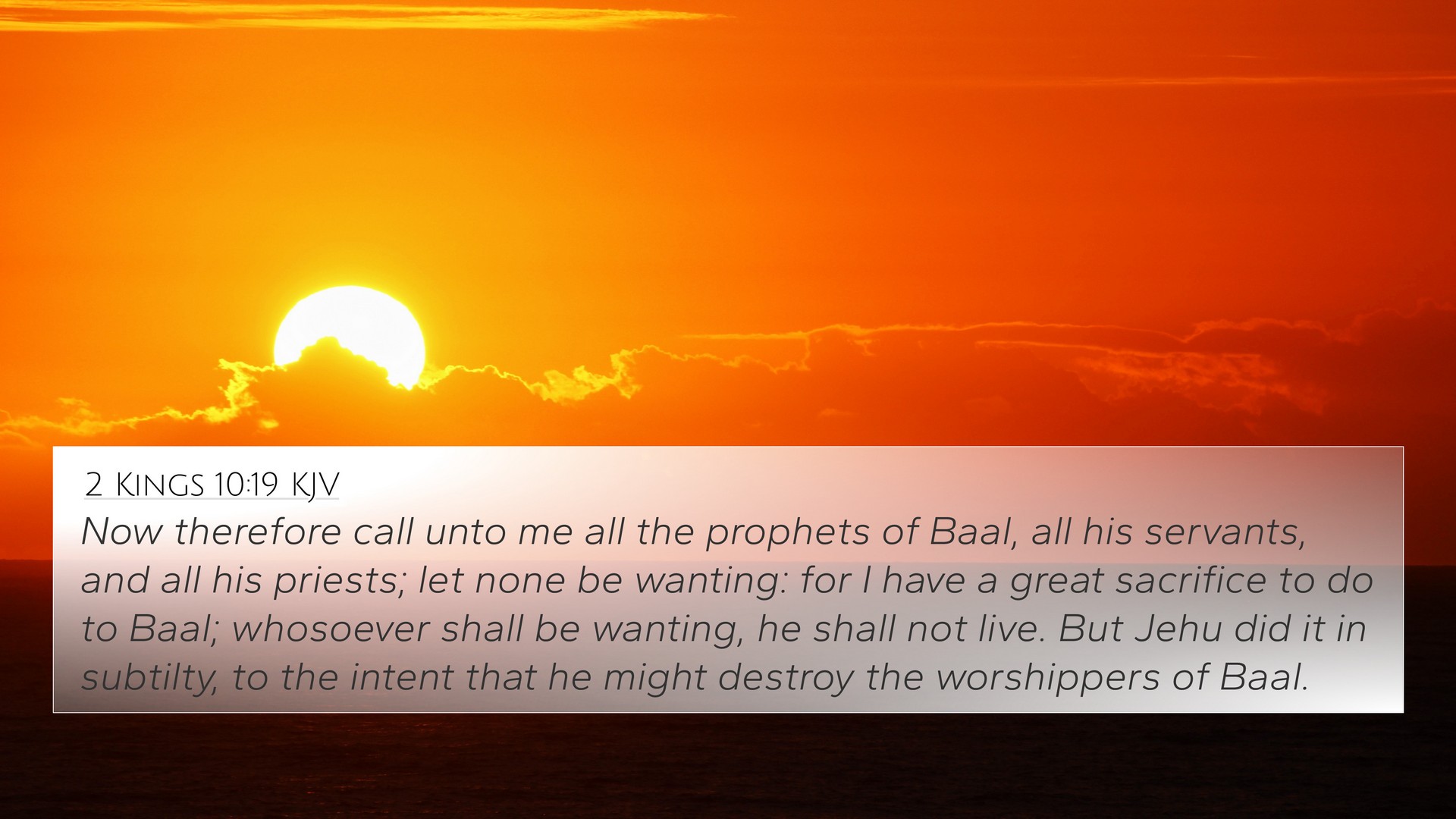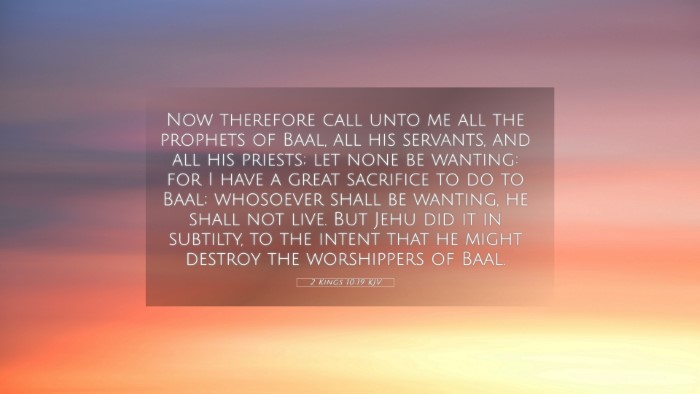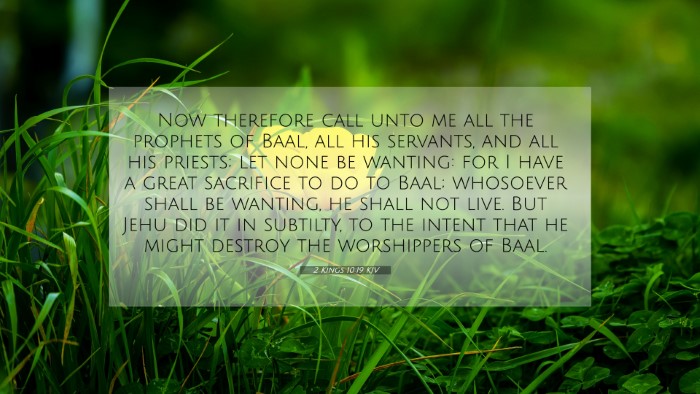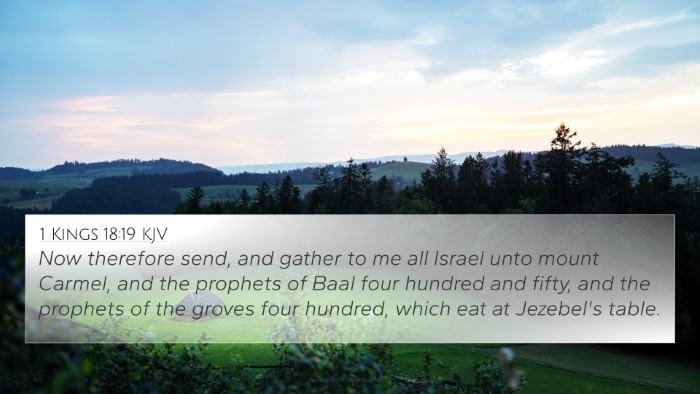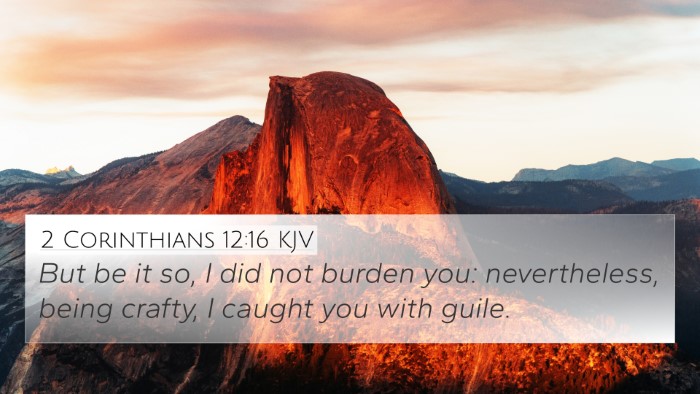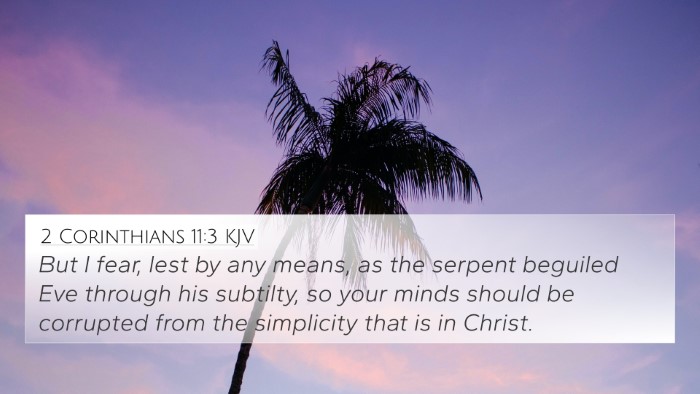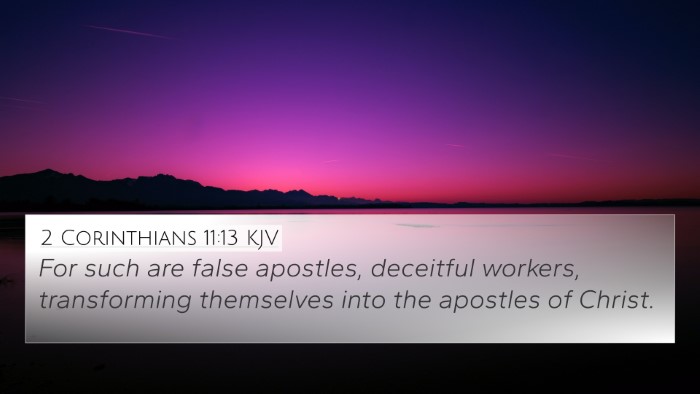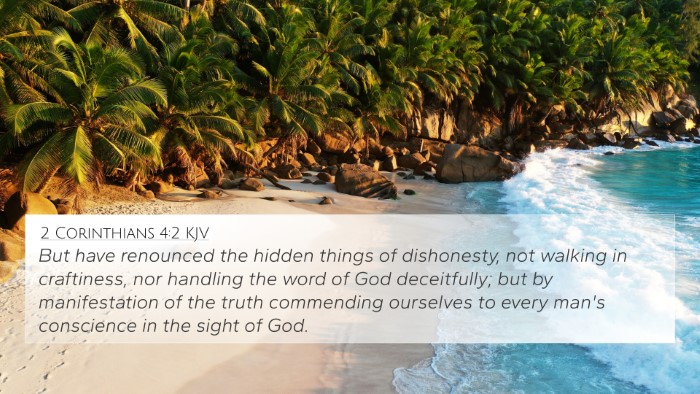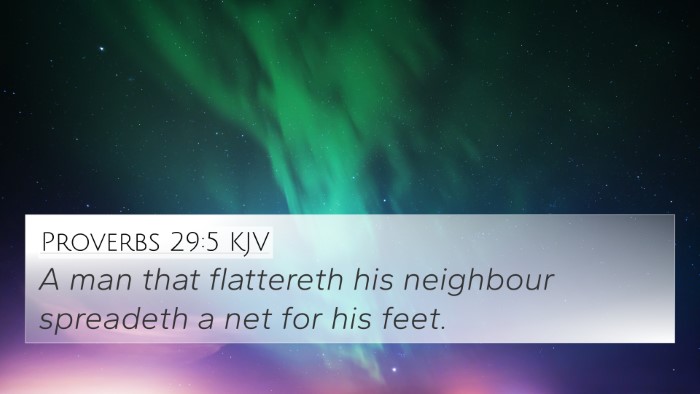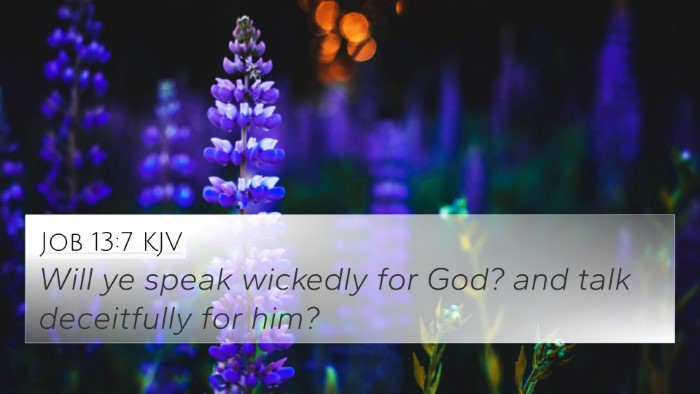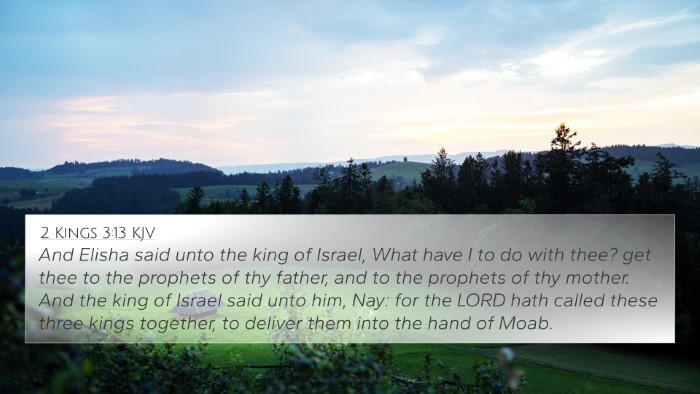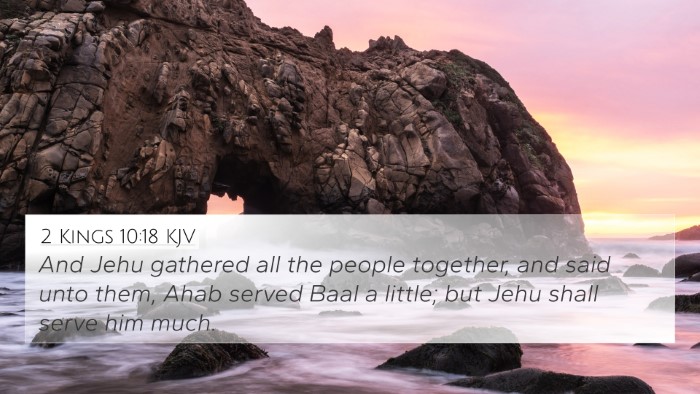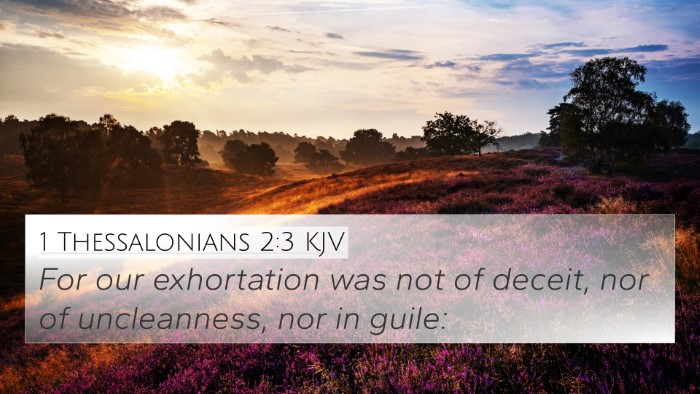Understanding 2 Kings 10:19
Verse: 2 Kings 10:19 - "Now therefore call unto me all the prophets of Baal, all his servants, and all his priests; let none be wanting: for I have a great sacrifice to do to Baal; whosoever shall be wanting, he shall not live. But Jehu did it in subtilty, to the intent that he might destroy the worshippers of Baal."
Summary of Interpretation
This verse is pivotal in illustrating the conflict between Yahweh and Baal worship during a time of great idolatry in Israel. Jehu, son of Jehoshaphat, had been anointed king and was tasked with cleansing Israel of the worship of Baal. His cunning approach involved deceiving the worshippers of Baal to gather them under the pretense of offering sacrifices, which would ultimately lead to their demise.
Thematic Significance
Several themes can be observed in this verse:
- Deception and Strategy: Jehu's actions display a strategic plan to eliminate idolatry in Israel.
- Judgment: This event marks a significant judgment against Baal worshippers, illustrating the serious consequences of turning away from God.
- Divine Providence: It emphasizes God's sovereignty in the events that unfold, even through the actions of those He uses for judgment.
Cross-References
To deepen the understanding of 2 Kings 10:19, here are some related Bible verses that provide context and further insights:
- 1 Kings 18:20-40 - Elijah's contest with the prophets of Baal highlights the futility of idolatry and God's ultimate authority.
- 2 Kings 10:28-29 - Jehu's subsequent actions illustrate the complete eradication of Baal worship in Israel.
- Jeremiah 23:13 - Addresses the false prophets and the danger of misleading worship in the name of false gods.
- 2 Chronicles 22:3 - Highlights the wickedness of Ahaziah and the influence of Baal worship in Israel.
- Isaiah 1:29 - Speaks against those who worship idols, reinforcing the tragic outcome of such misguided devotion.
- Hosea 2:13 - Acknowledges the judgment against God's people for participating in idolatrous activities.
- Revelation 17:16-18 - Describes the final judgment on those who led the nations astray into idolatry, paralleling the events in 2 Kings.
Insights from Commentaries
Matthew Henry: Henry notes the irony and boldness of Jehu's proclamation. He stresses that while Jehu claims a festival for Baal, his true intent is to eradicate Baal worship from Israel, showing God's ultimate purpose in history.
Albert Barnes: Barnes emphasizes the duplicity of Jehu. He points out that Jehu's cunningness aligns with historical precedents wherein leaders deceive for a greater cause—turning the worshippers' own intentions against them. This action serves as both a historical note and a moral lesson about the dangers of idolatry.
Adam Clarke: Clarke focuses on the ritualistic aspects of Baal worship and how deeply ingrained such practices were in society. He underscores the necessity for a decisive action to restore true worship and asserts that Jehu's actions, although ruthless, were critical for the spiritual cleansing of Israel.
Concluding Remarks
This verse encapsulates the struggle between true worship and idolatry, a theme recurrent throughout Scripture, connecting with many other passages that portray the consequences of turning away from God. As we engage with 2 Kings 10:19, we uncover vital insights into the nature of God’s judgment and His desire for His people to worship Him alone. This calls the reader to reflect on their pursuits and the fidelity of their worship against the backdrop of biblical teachings.
Tools for Further Study
For those interested in pursuing deeper biblical studies, understanding the links between verses is crucial. Here are some suggestions for tools:
- Bible Concordance: A comprehensive tool for finding keywords and their usages throughout the Bible, enabling good cross-referencing practices.
- Bible Cross-Reference Guide: Helps in identifying related scriptures, enhancing thematic studies.
- Cross-Reference Bible Study: Methods to facilitate deeper connections among verses.
- Bible Chain References: Provides a system to follow verses that lead to similar themes or teachings.
Conclusion
Understanding 2 Kings 10:19 through the lens of various commentaries helps illuminate the way God worked through Jehu to shape Israel's trajectory. By delving into the connections of this verse with others, one can appreciate the biblical narrative's depth and theological implications.
